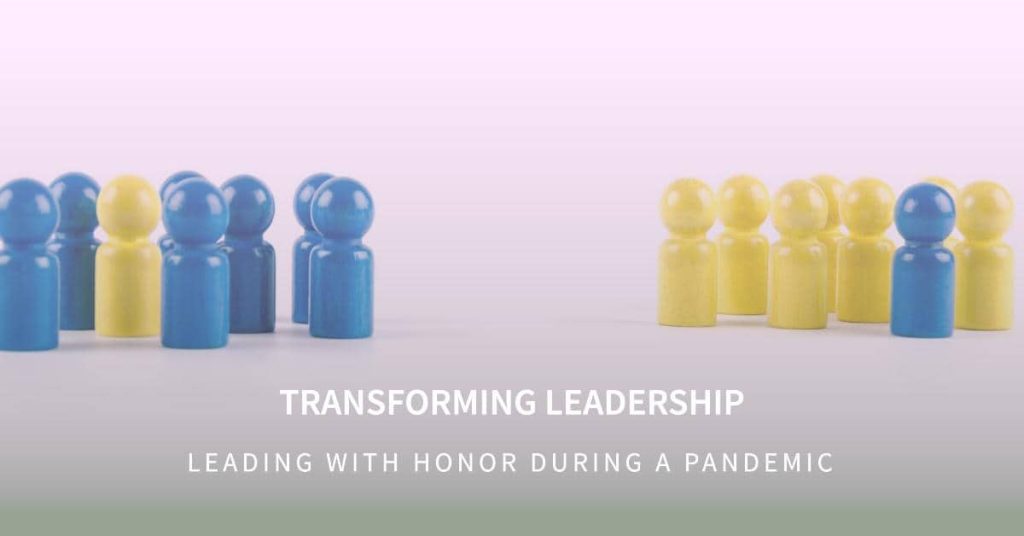Transformational Leadership: The Pandemic of Dishonor

Honor belongs to those who never forsake the truth, even when things seem dark and grim. They try again and again, never discouraged by insults, humiliation, or even defeat.– Nelson Mandela
Our world today faces a growing issue between leaders and those they lead, and this problem is rooted in dishonor. We see it between teachers and students, parents and children, mentors and protégés, coaches and players, employers and employees, pastors and members, and leaders and followers. Dishonor has become a pandemic that is damaging relationships at all levels. Leaders are losing their values, standards, and vision, while followers are demanding more from these struggling leaders, often without fully understanding the weight of leadership.
The Diminishing Value of Honor in Leadership
Leadership was once seen as a noble calling, where leaders were expected to be role models—leading with integrity, wisdom, and a sense of responsibility. However, as dishonor spreads, we witness a shift. Some leaders now focus more on maintaining power and protecting their image, rather than guiding those they lead with purpose. The pursuit of personal gain and reputation has replaced genuine service, leaving many leaders unworthy of the honor they once commanded.
This shift has created a disconnect, where followers, who once held leaders in high regard, now struggle to respect them. Followers have become more aware of their own power, often questioning and challenging authority when they feel leaders are not living up to the standards expected of them. This tension creates an environment of distrust, where dishonor on both sides erodes any possibility of mutual respect.
Why Honor is Essential for Growth
Both leaders and followers need to embrace the idea of transformational growth. This means developing strong character through challenges, not just protecting reputations. It’s about internal growth—gaining strength and maturity over time. We need to understand that leadership and followership are temporary roles. These positions don’t last forever, so we must build a society where honor is the foundation, allowing for a healthy system to thrive.
True growth as a leader or a follower requires us to focus on building character rather than simply defending our reputation. Growth comes when we face difficulties and grow stronger through them. Leaders must learn to face criticism and setbacks with grace, knowing that these challenges shape them into better leaders. Similarly, followers need to understand that their role is also one of growth and learning. There is a fine balance between accountability and honor—where both parties recognize their need for each other and work together for progress.
The Reciprocal Nature of Honor
Honor is not just given; it’s earned by the actions and sacrifices made for it. It should be mutual. Leaders should demonstrate strong influence, intellectual depth, compassion, and motivation. This happens when they fully take responsibility, not just by holding a position with good intentions. If a leader fails repeatedly, dishonor will likely follow. This could lead to a leader demanding respect, and when it isn’t given, it may result in manipulation or domination. Unfortunately, many leaders today confuse respect for honor and resort to manipulation or coercion to maintain authority.
When leaders feel they are losing control, they might try to demand respect by force or fear. This creates a toxic environment where dishonor becomes widespread. But true honor can never be forced—it must be earned through actions that inspire respect naturally. A leader who leads with integrity and vision will naturally command the respect of their followers without having to demand it.
The Rise of Dishonor in Society
The increase in dishonor from followers has been fueled by greater awareness through education, feelings of entitlement, and emotional reactions. This often leads to chaos in systems, as people try to challenge authority. Both leaders and followers must take responsibility to maintain peace, stability, and order in society.
We live in a time where many people believe that they are owed something, simply because of their position, education, or personal experiences. While awareness and education are important, they should not lead to entitlement. When followers feel entitled to authority, without earning it through responsibility or growth, it leads to rebellion, disrespect, and eventually chaos. A society without respect for authority and honor for leadership cannot function smoothly.
Leaders are often criticized for not meeting expectations, but followers also have a responsibility. The responsibility of a follower is not just to obey but to contribute constructively to the vision of the leader. It is important to hold leaders accountable, but it should be done with respect and honor. Honor doesn’t mean blind loyalty; it means constructive engagement with leadership, where followers challenge and contribute with a mindset of growth rather than destruction.
Building a Culture of Honor
Honor, at its core, is about recognizing, celebrating, and rewarding the value in another person or respecting the rules that guide principles. It’s a type of wisdom, like being organized. Honor is not the same as love; it’s more like excellence—an attitude of the spirit that is shown in our actions. Honor requires intentional practice, and it must be integrated into our leadership systems from the ground up.
To build a culture of honor, we must start by recognizing the importance of every role within the system. Leaders need followers, and followers need leaders. Each has a part to play, and both roles must be respected for society to function well. A culture of honor means we understand the value of each individual and respect them for what they bring to the table. It’s about working together with mutual respect, where both leaders and followers can grow, learn, and succeed.
Protecting Human Dignity
In conclusion, no person should be mistreated, abused, profiled, enslaved, manipulated, or disrespected. Every individual deserves a level of honor, simply because of their fundamental human rights. This is the balance needed between followers and leaders. No matter the mistakes or shortcomings of a leader, they should not be humiliated or dehumanized. Similarly, followers should never be oppressed or mistreated by those in positions of power. Honor should be the foundation of all interactions, creating an environment where everyone feels valued, respected, and heard.
The Way Forward
To overcome this pandemic of dishonor, we must return to the basics of what it means to lead and follow with integrity. Leaders need to embrace responsibility and service, while followers need to engage with respect and accountability. Only then can we restore honor to its rightful place in our society.



